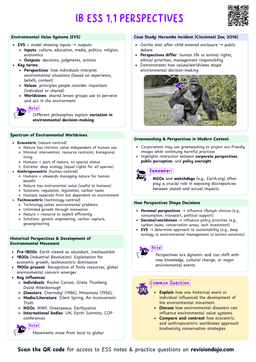- The hunting of seals, whales, and dolphins lies at the intersection of animal ethics, indigenous rights, and environmental conservation.
- These practices provoke intense debate worldwide because they challenge how societies balance biodiversity protection, cultural survival, and animal welfare.
Historical Background
- Marine mammal hunting dates back thousands of years, particularly among Arctic and coastal indigenous communities who depended on whales and seals for survival.
- By the 19th and 20th centuries, industrial whaling expanded dramatically due to demand for whale oil, meat, and baleen, causing widespread species decline.
- In response, the International Whaling Commission (IWC) was formed in 1946 to regulate the whaling industry and promote conservation.
- In 1982, the IWC declared a moratorium on commercial whaling, which came into force in 1986.
- However, exceptions remain for scientific research and indigenous subsistence whaling.
Contrasting Perspectives on Marine Mammal Harvesting
1. Animal Rights and Environmental Ethics Perspective
- Marine mammals possess high intelligence, complex communication, and strong familial bonds, which many argue grant them intrinsic moral value.
- Animal welfare advocates and environmental NGOs argue that:
- Killing whales and dolphins causes immense suffering and violates their bio-rights.
- Modern societies no longer require whale meat or oil for survival.
- Cultural justifications cannot outweigh ethical concerns of sentience and cruelty.
- Critics also highlight the non-selective and inhumane killing methods, such as drives or explosive harpoons.
- Ethical arguments extend to conservation: even when not endangered, the killing of intelligent marine species for food or profit challenges moral boundaries.
Faroe Islands - Pilot Whale and Dolphin Hunting (“Grindadráp”)
- The Faroe Islands, a Danish territory in the North Atlantic, conduct an annual pilot whale drive hunt called Grindadráp.
- Up to 800 long-finned pilot whales and other small cetaceans are killed each year.
- The hunt is community-driven, with meat and blubber shared locally.
- Defenders claim:
- It is a sustainable local tradition providing valuable protein.
- The whales are not endangered and caught using traditional methods.
- Critics argue:
- The method, driving entire pods onto beaches and killing them, causes significant suffering.
- The event is public and bloody, sparking global outrage.
- Whale meat contains high mercury and PCB levels, posing health risks.
- Environmental organizations (e.g., Sea Shepherd) have campaigned against the hunt, arguing it damages the Faroe Islands’ international reputation.
The Faroese government has since reviewed regulations, including setting annual limits and mandating humane slaughter techniques, but criticism persists globally.
2. Indigenous Rights and Cultural Perspective
- For Arctic Indigenous communities such as the Inuit and Iñupiat, hunting marine mammals is central to survival, culture, and spirituality.
- Marine mammals provide food, clothing, tools, and fuel in harsh environments where agriculture is nearly impossible.
- Indigenous groups argue that their hunting is sustainable, using traditional methods and respecting animal spirits.
- Restrictions imposed by external authorities can threaten cultural sovereignty and food security.
Inuit Whaling and Narwhal Hunting
- Inuit communities depend on bowhead whales, narwhals, and seals for food and income.
- Whaling provides 50% or more of dietary protein in some Arctic villages.
- The IWC permits Inuit communities to hunt 40-70 bowhead whales per year.
- Their hunts are community-based, involving collective sharing of meat and oil.
- However, recent assessments show that narwhal populations have declined sharply:
- East Greenland populations dropped from ~1900 in 2008 to ~400 in 2016.
- A further decline could result in local extinction within the next decade.
- Scientists have warned that even regulated quotas can be unsustainable under changing climatic conditions.
Legal and Ethical Frameworks
International Whaling Commission (IWC)
- Established under the International Convention for the Regulation of Whaling (ICRW).
- Enforces global bans on commercial whaling while allowing:
- Scientific whaling (e.g., Japan’s controversial “research” whaling).
- Aboriginal subsistence whaling (e.g., Inuit, Chukchi, and Greenlandic communities).
Ethical Dilemmas
- Bio-rights vs. Cultural Rights: Should the right of a whale to live outweigh indigenous cultural traditions?
- Conservation vs. Subsistence: Can traditional practices remain sustainable under changing environmental and economic pressures?
- Western Morality vs. Cultural Relativism: Can external societies ethically judge indigenous practices through their own moral lens?
Environmental and Health Implications
- Toxic Contaminants: Whale and dolphin meat often contains mercury and POPs, posing serious health risks.
- Population Decline: Slow reproduction rates mean that even low harvest levels can threaten species recovery.
- Tourism Alternative: In many regions, whale watching has replaced whaling, offering an eco-tourism alternative that preserves wildlife while sustaining livelihoods.
In sustainability questions, mention ecotourism as a long-term economic alternative to hunting.
- Explain how the concept of bio-rights conflicts with the cultural rights of indigenous communities in marine mammal hunting.
- Compare the Inuit narwhal hunt and the Faroe Islands’ dolphin hunt in terms of sustainability and ethical justification.
- Describe the role of the International Whaling Commission (IWC) in regulating whaling and its limitations.
- Evaluate how modernization has influenced traditional subsistence hunting practices.
- Suggest two sustainable alternatives to marine mammal hunting that respect both conservation and cultural traditions.


